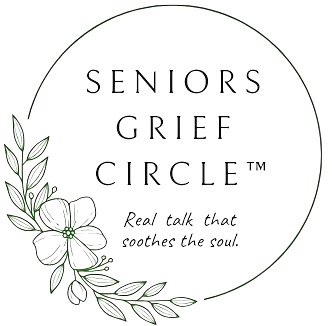If you’ve been a caregiver and have recently lost your parent, this post is for you.
Perhaps you’re an adult child and you’re now hit with two things: the loss of your parent, and your role as a caregiver has now ended too.
Navigating the poignant realm of grief after losing a parent is an emotional passage that demands tender care for one’s heart. In this transition, it becomes essential to not only acknowledge the complexities of grief but also to consider some practical strategies for coping.
Allow Yourself to Feel
As a caregiver, you may have been the pillar of strength, but as a griever, it’s crucial to allow yourself the space to feel the depth of your emotions. Whether it’s sadness, anger or even relief, every emotion is a valid part of the grieving process. Give yourself permission to experience and express these feelings without judgment. Cry and don’t suppress tears – often a release of tears can make you feel lighter and peaceful.
Reach Out for Support
The journey from caregiver to griever can feel isolating, but you are not alone. Surround yourself with friends and family who genuinely care and understand the unique challenges of losing a parent. Become a member of the Seniors Grief Circle and join our warm and caring community who just gets it – you’ll meet people grieving just like yourself, plus you’ll gain access to a wide range of community resources and services to help you during this tender time. Seek grief coaching, also available through the Seniors Grief Circle membership program or 1:1 support, or connect with a grief therapist to help you with processing your emotions.
Establish Meaningful Rituals
Incorporate meaningful rituals into your grieving process to honor and remember your parent. This could be creating a scrapbook, planting a tree in their memory, or holding a small memorial ceremony or prayer service. Rituals offer a sense of continuity, allowing you to maintain a connection with your parent in a way that feels authentic to you.
Prioritize Self-Care
As a caregiver, your focus was likely primarily on your parent’s well-being. Maybe you neglected your own health as a result. Now, begin to shift some of that attention inward. Prioritize self-care by engaging in activities that bring you comfort and peace. Whether it’s a quiet walk in nature, journaling your thoughts, taking a small vacation, or seeking professional help, self-care is an essential component of the grieving process.
Be Kind and Patient With Yourself
Grieving is a non-linear journey with ups and downs. You might find yourself triggered with flashbacks through daily activities that you once did with your parent, or items around the home, or the music or food you enjoyed together. You could find yourself in tears at the most unexpected time. Be patient with yourself as you navigate this new terrain. Allow the healing process to unfold at its own pace, and remember that kindness toward yourself is a gentle balm for a grieving heart.
It’s not easy to transition from being a caregiver to a griever. There’s nothing to prepare you for this profound and challenging journey. By accepting your emotions just as they are, cultivating a support network, establishing meaningful rituals, prioritizing self-care and practicing loving patience, you can navigate this emotional terrain with a compassionate heart.
Your grief is a testament to the love you shared, and in time, these strategies can help you find solace and healing.
Looking for some support? Consider joining the Seniors Grief Circle today.

